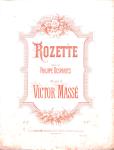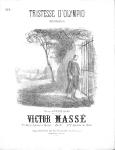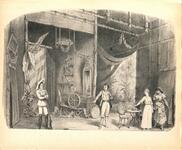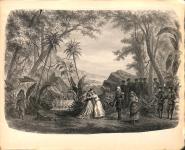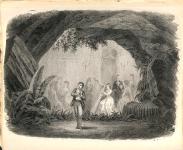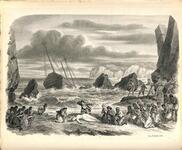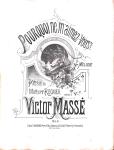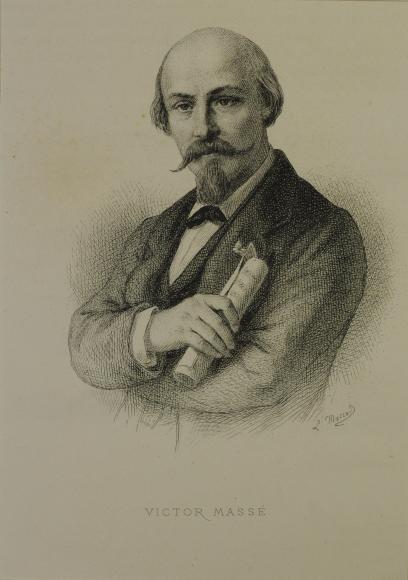
Victor MASSÉ
1822 - 1884
Composer
Born in Lorient (Brittany), Massé studied at the Institution royale de musique classique et religieuse founded by Choron, then from 1834 at the Paris Conservatoire with Zimmermann (piano) and Halévy (composition). He won the Prix de Rome in 1844 for his cantata Le Renégat de Tanger. While in Italy, he composed the opera La Favorita e la Schiava and a Messe solennelle that was performed in Rome at the church of San Luigi dei Francesi in 1846. Back in Paris, his opéra-comique La Chanteuse voilée (1850) drew attention to his skills. He devoted the greater part of his output to opera. His most notable works include Galathée (“one of the artist’s finest scores” according to Fétis), Les Noces de Jeannette and La Reine Topaze. After the premiere of La Fiancée du diable (1854), the critic Alphonse de Calonne praised the composer’s “taste, skill and inventiveness”, combined with “refreshing ideas, a natural and easy grace and a charming rondeur that appeal to everyone, from the most discerning and exacting of musicians to the most ordinary listener”. Massé also composed the operas La Mule de Pedro and Paul et Virginie. The latter, first performed in Paris in 1876 and revived at Covent Garden two years later, is remarkable in its instrumentation and its gradual shift from recitative to aria. Massé also left three art-song (mélodie) collections, Chants d'autrefois, Chants du soir and Chants bretons. He was appointed chorus master at the Paris Opéra in 1860, professor of composition at the Conservatoire in 1866, and in 1872 he succeeded Auber at the Académie des Beaux-Arts.
Focus
Focus

